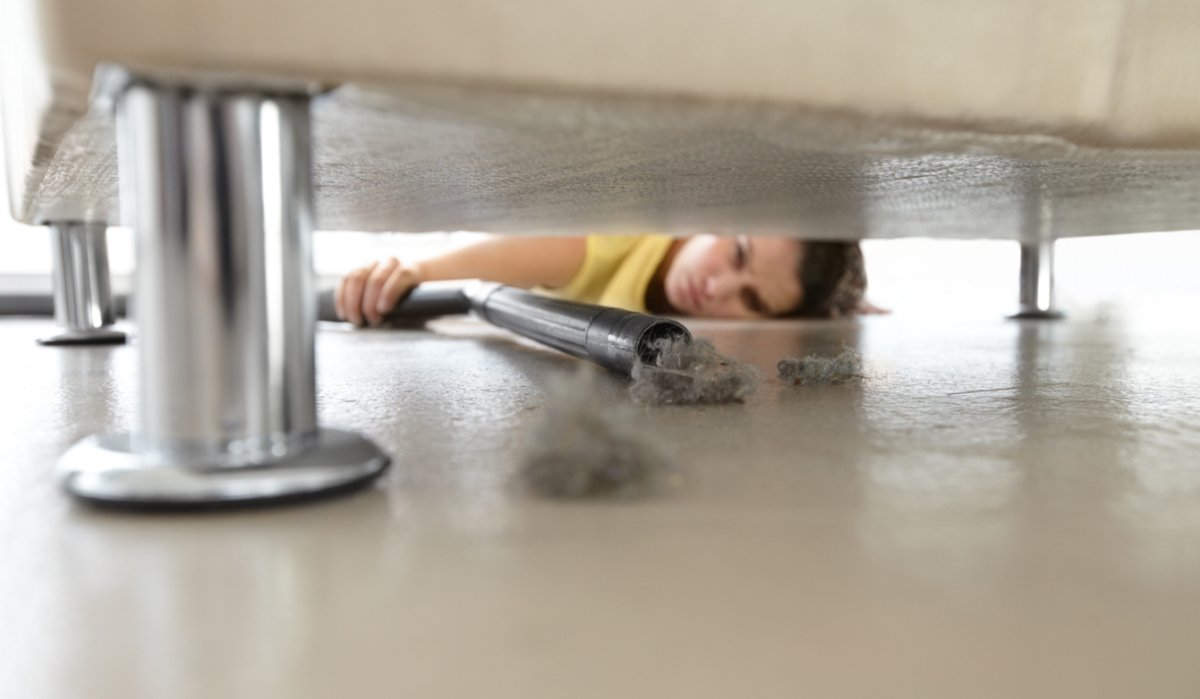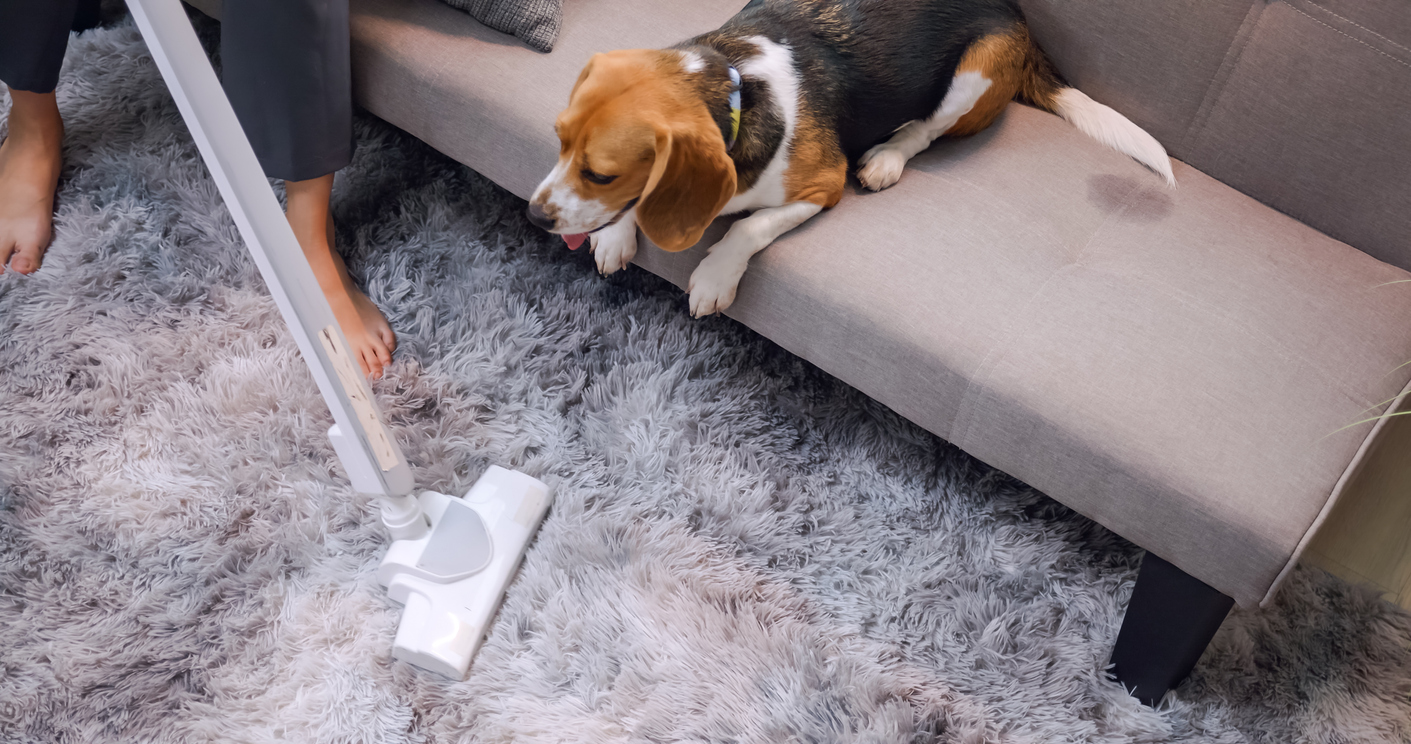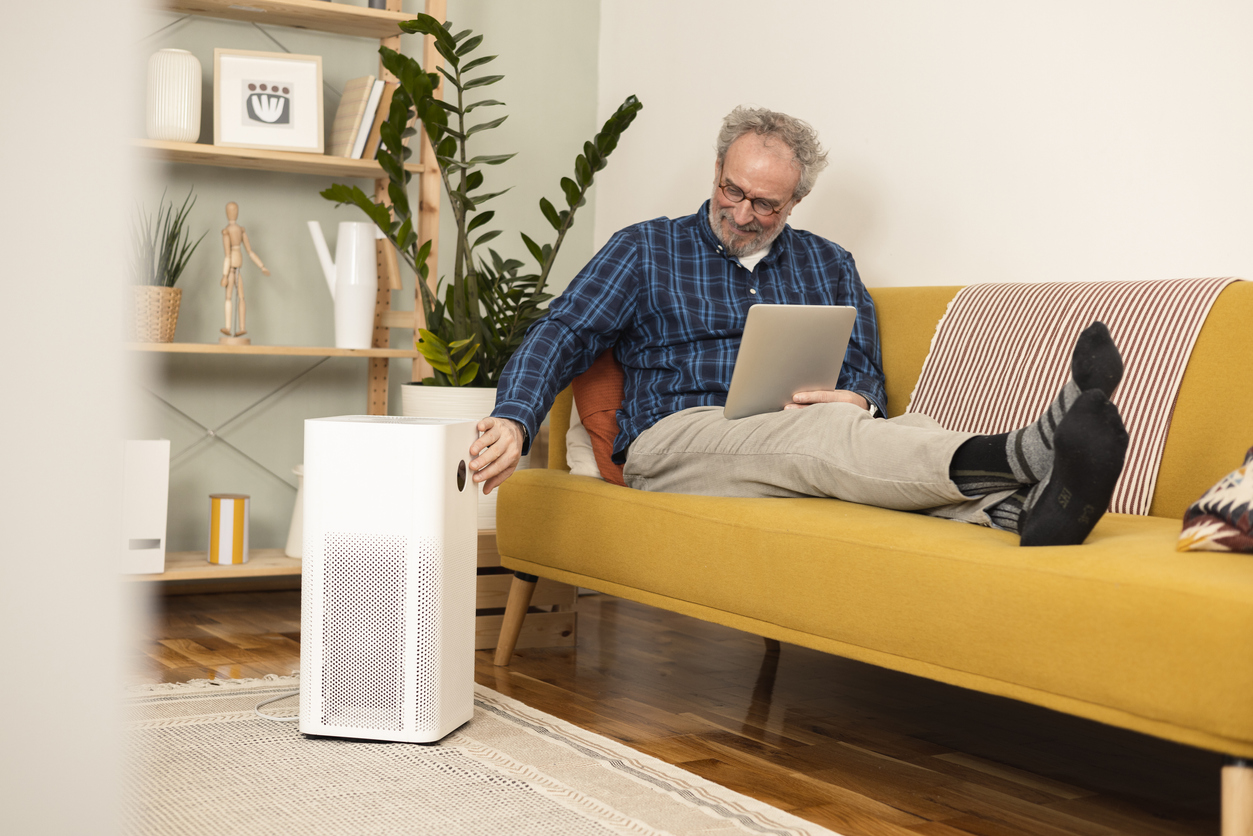

We may earn revenue from the products available on this page and participate in affiliate programs. Learn More ›
Q: I pride myself on keeping a tidy home, but I can’t seem to get a handle on the dust. It seems like a layer of dust appears on my furniture mere hours after I clean up. Why is my house so dusty, and how can I fix it?
A: You’re not alone in the battle for a dust-free home. That persistent layer of dust on furniture can come from several sources, including dirt, pollen, and even dead skin. In addition to dusty surfaces being unsightly, those dust particles are also in the air your household breathes, potentially causing health issues for anyone with dust allergies.
If you replace your air filters and dust surfaces regularly, you may not be doing anything wrong when it comes to how to get rid of dust in the home. These tips on how to reduce dust in your house can help you turn the tide.
RELATED: How to Get Rid of Dust: 20 Simple Home Cleaning Tips
Where does dust come from?
Dust isn’t just dirt that makes its way indoors, although that’s definitely a major component of the stuff. It’s made up of many particles, such as hair, dead skin, pet dander, pollen, dead bugs, dust mite droppings, and even microplastics. There are several common contributors that can increase the amount of dust in a home, and recognizing them can help you tackle what causes dust directly at the source.

1. Low-Quality or Dirty HVAC Filters
Your first lines of defense against dust are the HVAC filters in your return vents (or on the HVAC unit itself), but not all filters are created equal. Low-quality air filters have larger holes in them, allowing dust to pass through and reenter through the home’s supply vents.
Air filters are rated on a scale of 1 to 16 by their minimum efficiency reporting value (MERV), with higher numbers representing more efficient filters. When selecting HVAC air filters look for MERV ratings between 5 and 8, such as the Filterbuy MERV 8 air filters. MERV ratings below this range aren’t efficient enough, while higher ratings are reserved for medical or commercial use.
Of course, even the best air filters still get clogged with dust and require replacement. Replace your air filters at least every three months or when they’re visibly saturated.
RELATED: The 10 Best Air Purifiers for Fresh Air, Tested
2. Dirty Rugs and Carpets
Dirt that settles into carpet and rug fibers can be a major contributor to dust in the home. Frequent vacuuming can help, as long as you don’t recirculate some of the dust back into the living space. Unfortunately, that’s bound to happen if you use a vacuum with inefficient dust-trapping capabilities. Consider switching to a HEPA vacuum, which can trap as much as 99 percent of the dust and debris it collects. This Kenmore bagless upright vacuum, for example, has a HEPA filter yet it’s still lightweight and relatively inexpensive.
To further reduce dust in carpeting, encourage household members and guests to take off their shoes at the front door, either stowing them in an entryway rack or carrying them directly to the appropriate closet. Carpet dirt can be substantially reduced with these measures, but the only way to eliminate this source of house dust is to swap out carpeting for hardwood, laminate, or another dust-friendly type of flooring.

3. Dusty Upholstery and Draperies
Fabric accumulates dust, and the simple act of opening the curtains or sitting on the sofa can release that dust into a room. Once a week, use your vacuum’s attachments to vacuum upholstered couches and chairs, as well as any thicker window treatments like blackout curtains.
Washing or dry cleaning draperies yearly also helps reduce dust trapped in their fabric. And if your upholstered furniture pieces are extreme dust magnets, consider switching out fabric-covered furniture with easy-to-dust leather or wood.

4. Pet Dander
Cats and dogs—even short-haired breeds—shed a lot of fur and skin flakes, which is commonly referred to as pet dander. Pet dander can add to a home’s dust level, especially if you have multiple furry friends. Commit to brushing your pets weekly (or more often for long-haired breeds) to remove loose hair, or have them regularly groomed by a professional. Running a vacuum built to pick up pet hair, such as the Shark Navigator Lift Away Upright Vacuum, at least once a week also helps if your pets are big shedders.
RELATED: Pet Dander, Odors, and Allergens—These 8 Air Purifiers for Pets Get Rid of Them All
5. Leaky Windows and Doors
Gaps around windows and doors don’t just lead to energy loss; they also let dust into the house every time the wind blows. Living near a dirt or gravel road can worsen how much dust makes into a poorly sealed home. Fortunately, the solution is simple: Caulking window gaps and installing new weatherstripping around doors goes a long way to keep dust from blowing in.

6. Unsealed Air Ducts
HVAC ducts run through ceilings, walls, attics, and crawlspaces, and when there are any holes or unsealed spots where two pieces of ductwork connect, dust can be drawn into the ducts and then blown into your living space. If you’re left wondering, “Why does my house get so dusty?” after addressing all of the above, a leaky air duct could be the problem.
Should you notice more dust settling on furniture and flooring after running the furnace or air conditioner, it might be time to call an HVAC technician. They can run a pressure test on the duct system, find potential leaks, and repair them.
RELATED: This Is the Correct Way to Dust Your Home
7. High Indoor Humidity
A lesser-known cause for a dusty house is high humidity. Excess humidity causes dust particles to stick together and settle on surfaces, rather than stay airborne. Unlike many cleaning and maintenance issues, a humid local climate is mostly out of a homeowner’s control.
However, there are some steps you can take to reduce humidity and dust in a house. Ensure your doors and windows remain shut on humid days, and (as detailed above) seal any gaps in these and other vulnerable areas with caulk. Equally importantly, consider investing in a dehumidifier like the Vornado 1,000-sq. ft. dehumidifier to keep particularly humid rooms in check, or minimize moisture throughout the house with a whole-house dehumidifier.

8. Poor Indoor Air Quality
Many outdoor contaminants make their way indoors, and dust is just one of them. You can use an air quality monitor to measure your home interior’s air pollution. If the readings detect moderate to high levels of any pollutants, you can bet that dust is among them.
Luckily, dust in the air can be reduced by using an air purifier. Air purifiers use filters, such as carbon and HEPA filters, to trap airborne dust and other particulate matter, keeping it off of surfaces and out of your lungs. Our favorite staff-tested air purifier, the Shark 3-in-1 Max Air Purifier, covers up to 1,000 square feet and doubles as both a fan and heater.
RELATED: The 10 Best Air Purifiers for Fresh Air, Tested

How often should you dust your home?
How to get rid of dust goes hand in hand with how often you dust furniture and other surfaces. There’s no hard and fast rule, but dusting at least once per week is a good idea; you may need to dust two to three times weekly if you have pets, or your home is in a dusty or humid environment. At the very least, dusting every other week should keep your house from becoming too dusty.
No matter how often you clean your home’s surfaces, be sure you’re doing it correctly to avoid moving dust from furniture to the air and back. Use a microfiber cloth or duster to trap dust rather than recirculate it—though if you’d rather use a rag, dampen it slightly to achieve the same effect. Dust your home from top to bottom, meaning crown molding, trim, walls, and tall parts of furniture should be dusted first before moving onto lower surfaces, like tables, counters, and baseboards. Finally, always dust before sweeping, mopping, and vacuuming floors in order to collect and dispose of as much dust as possible.
